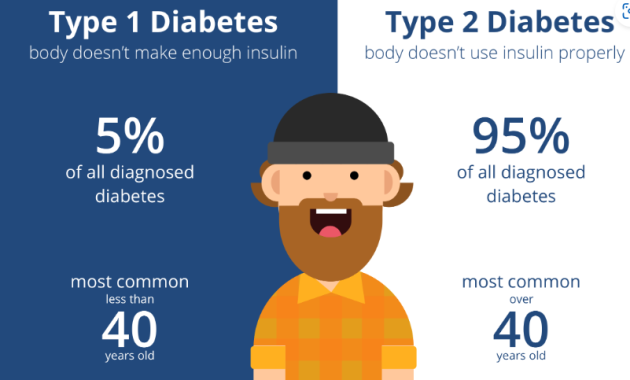
Diabetes and Mental Health: What You Need to Know
The relationship between diabetes and mental health is often overlooked. It’s a complex interplay. This article explores this critical connection. We delve into the impact of diabetes on mental well-being. We also examine the ways mental health can affect diabetes management. Understanding this relationship is crucial. It leads to better outcomes for those living with diabetes. It also promotes overall wellness. This article will give you the information you need. It covers the key aspects of this important topic.
The Prevalence of Mental Health Conditions in People with Diabetes
People with diabetes are at a higher risk. They face mental health challenges compared to the general population. Studies show that rates of depression and anxiety are significantly elevated. These conditions can worsen diabetes management. They can also negatively impact quality of life. The chronic nature of diabetes can be overwhelming. It can also lead to feelings of isolation and hopelessness. The constant demands of managing blood sugar levels can be stressful. It can contribute to emotional distress.
Research consistently highlights this increased risk. Depression affects a significant percentage of individuals with diabetes. Anxiety disorders are also common. Eating disorders, such as bulimia and anorexia, are also more prevalent. These conditions can complicate diabetes management. They can also lead to other health problems. It’s important to recognize that mental health is an integral part of overall health. Addressing these issues is essential. It is important to ensure comprehensive care.
How Diabetes Can Impact Mental Health
Diabetes can directly and indirectly affect mental health. The constant need for self-management can be burdensome. It can also lead to emotional exhaustion. The fear of complications, such as nerve damage or heart disease, can cause anxiety. The physical symptoms of diabetes, like fatigue, can contribute to low mood. Fluctuations in blood sugar levels can also impact mood. They can lead to irritability, difficulty concentrating, and other cognitive problems.
Furthermore, the social stigma associated with diabetes can be damaging. It can lead to feelings of shame and isolation. People with diabetes may feel misunderstood. They can also feel judged by others. This can worsen mental health. The financial burden of diabetes can also be a source of stress. It can add to existing mental health issues. Access to healthcare and support services is very important. These are essential to mitigating these challenges.
The Influence of Mental Health on Diabetes Management
Mental health issues can significantly affect diabetes management. Depression, anxiety, and other conditions can make it difficult to adhere to treatment plans. People with depression may neglect their self-care routines. They may skip medication doses. They may also fail to monitor their blood sugar levels regularly. Anxiety can lead to unhealthy coping mechanisms. These can include overeating or avoiding exercise. These behaviors can worsen blood sugar control. They can also increase the risk of diabetes complications.
Mental health can also impact the motivation to manage diabetes. It can also affect the ability to make healthy lifestyle choices. People with mental health problems may struggle with self-discipline. They may find it difficult to follow dietary recommendations. They may also have trouble sticking to exercise regimens. Addressing mental health issues is important. It helps people with diabetes. It improves their ability to manage their condition effectively.
Common Mental Health Conditions Associated with Diabetes
Several mental health conditions are more prevalent in people with diabetes. Understanding these conditions is crucial for effective treatment. The most common conditions include:
- Depression: This is characterized by persistent sadness, loss of interest, and fatigue. It can significantly impair diabetes management.
- Anxiety Disorders: These include generalized anxiety disorder, panic disorder, and social anxiety. Anxiety can lead to poor blood sugar control.
- Eating Disorders: Conditions like bulimia and anorexia are common in people with diabetes. They can be particularly dangerous due to insulin manipulation.
- Diabetes Distress: This is a specific type of distress. It’s related to the challenges of diabetes management. It can lead to burnout and feelings of hopelessness.
Recognizing the signs and symptoms of these conditions is crucial. Early intervention can prevent worsening outcomes. It also improves quality of life. Seeking professional help is important. It can also provide the necessary support and treatment.
Strategies for Managing Diabetes and Mental Health
Managing both diabetes and mental health requires a multifaceted approach. This approach includes medical treatment, lifestyle changes, and support systems. Here are some strategies:
- Medical Treatment: This may include medication for both diabetes and mental health conditions. Antidepressants, anti-anxiety medications, and insulin are often used. Regular monitoring by healthcare professionals is crucial.
- Therapy: Cognitive Behavioral Therapy (CBT) and other forms of therapy are very helpful. Therapy can help manage both diabetes and mental health issues. It can provide coping skills and emotional support.
- Healthy Lifestyle: Regular exercise, a balanced diet, and sufficient sleep are essential. These can improve both physical and mental well-being. These also help with diabetes management.
- Support Groups: Connecting with others who have diabetes can provide emotional support. Support groups can also reduce feelings of isolation. They can also share practical tips for managing the condition.
- Mindfulness and Stress Reduction Techniques: Practices like meditation and deep breathing can reduce stress. They can also improve mental health. They can also positively affect blood sugar control.
Implementing these strategies can help people manage their diabetes. It can also improve their mental health. It can significantly improve their overall quality of life. It’s important to seek professional guidance. It also ensures that treatment plans are tailored to individual needs.
The Importance of Seeking Professional Help
It is important to seek professional help if you are struggling with diabetes and mental health. Healthcare providers can provide comprehensive care. They can also assess your needs and develop effective treatment plans. This includes:
- Primary Care Physicians: Your doctor can help manage diabetes. They can also provide referrals to mental health professionals.
- Endocrinologists: These specialists manage diabetes. They can also work with you to optimize blood sugar control.
- Mental Health Professionals: Therapists, psychiatrists, and counselors can provide therapy and medication. They can also offer support for mental health conditions.
- Diabetes Educators: These professionals can teach you about diabetes management. They can provide support and guidance.
Don’t hesitate to reach out for help. Early intervention can prevent complications. It can also improve your overall well-being. Remember, you are not alone. Support is available. It can help you live a healthier and happier life. Addressing both diabetes and mental health is crucial. It’s essential for a comprehensive approach to care.
Resources and Support for People with Diabetes
Several resources are available. They offer support and guidance for people with diabetes. They also offer help with mental health concerns. These resources include:
- American Diabetes Association (ADA): Provides information, education, and support. They also offer advocacy for people with diabetes.
- National Institute of Mental Health (NIMH): Offers information on mental health conditions. They also provide resources for treatment and support.
- Mental Health America (MHA): Provides resources and support for mental health. They also offer screenings and educational materials.
- Local Support Groups: These groups offer a supportive community. They can provide emotional support. They can also share practical tips.
- Online Forums and Communities: These platforms offer a place to connect with others. They also share experiences and get support.
Utilizing these resources can empower you. It can also help you manage your diabetes. It also supports your mental health. Don’t hesitate to explore these options. Find the support that best meets your needs. Remember, taking care of your mental health is as important as managing your diabetes. They both work together. They contribute to your overall well-being.
Conclusion: Prioritizing Well-being with Diabetes
The relationship between diabetes and mental health is complex. It is also very important. Recognizing this connection is essential. It’s the first step toward effective management. Prioritizing your mental well-being is crucial. It can improve your diabetes management. It can also enhance your overall quality of life. Seek professional help when needed. Utilize available resources. Embrace healthy lifestyle choices. By taking proactive steps, you can live a fulfilling life. You can also thrive even with diabetes. Remember, you are not alone. Support is available. It is essential for your journey. Managing both diabetes and mental health is an ongoing process. It requires commitment and self-compassion. By prioritizing both, you can achieve optimal health and well-being. This will also give you a better quality of life.
[See also: Related Article Titles]

